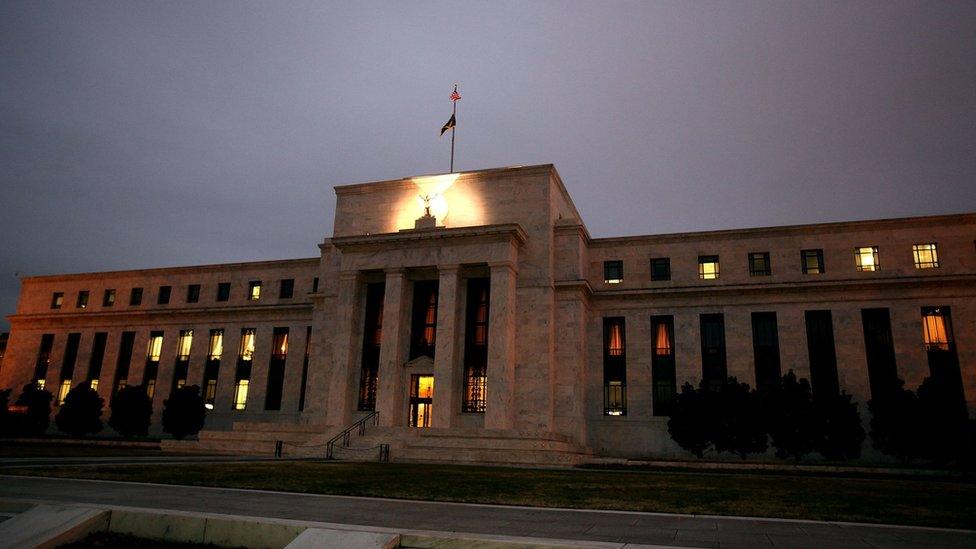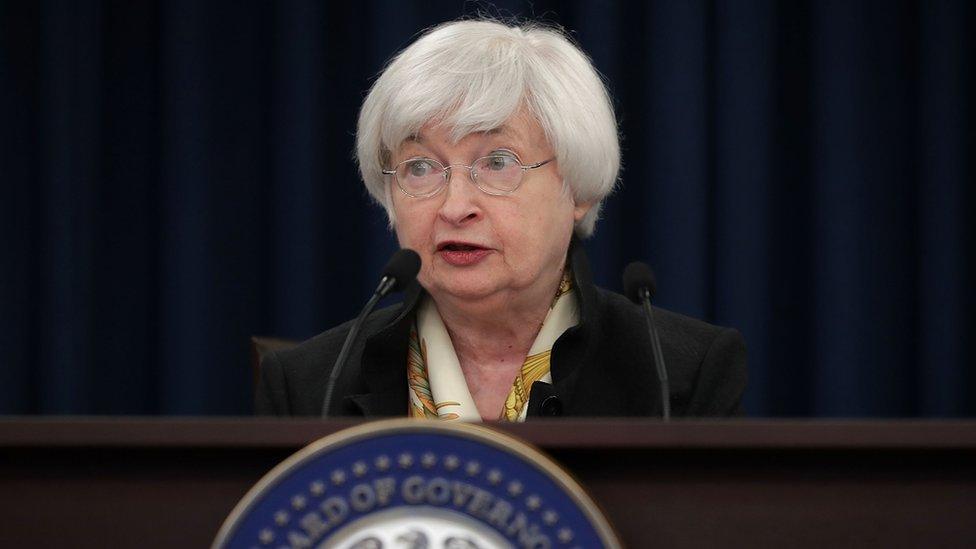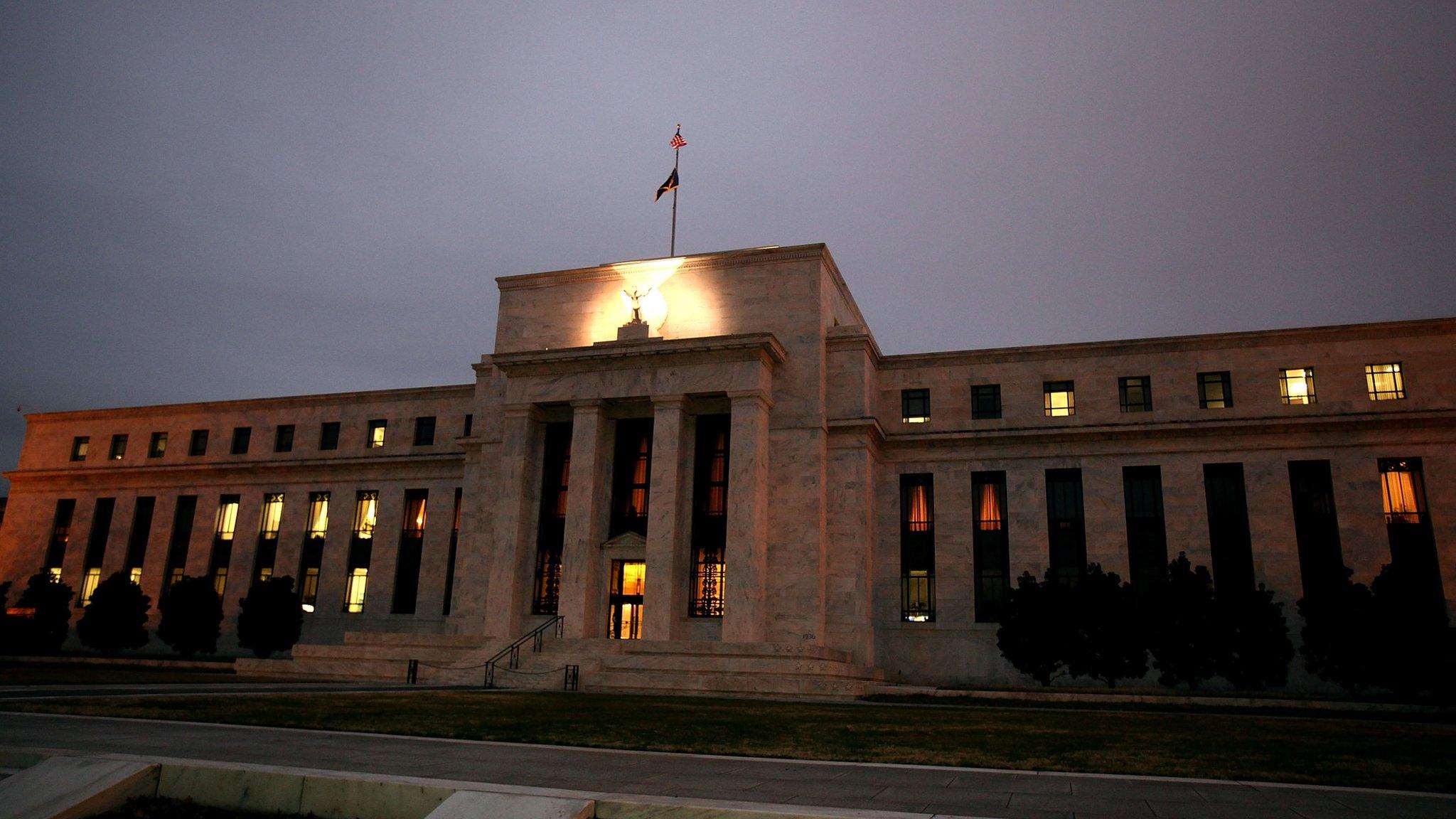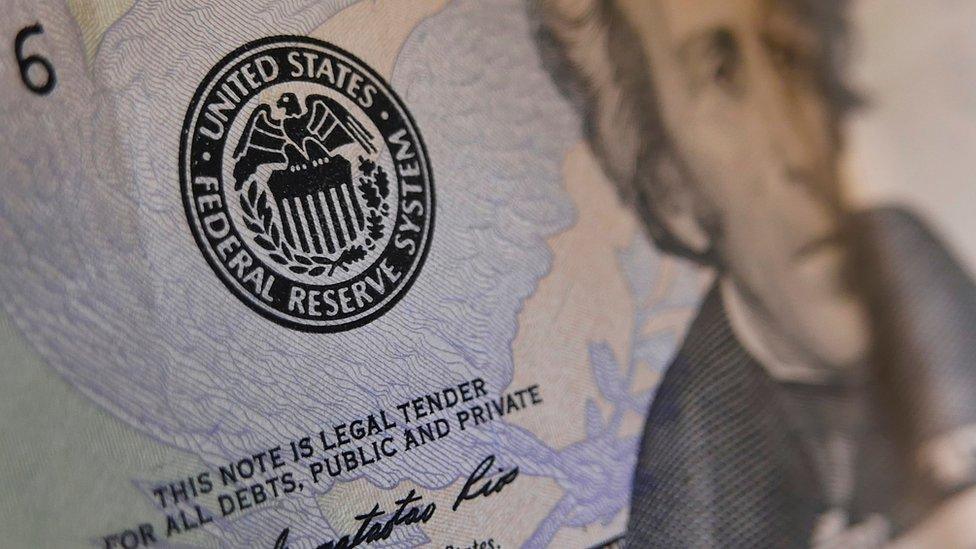Federal Reserve split on timing of next rate rise
- Published

Minutes from the US central bank's last meeting show policy-makers divided over when the next rate rise should come.
According to the minutes, external, some Federal Reserve members felt "economic conditions would soon warrant taking another step", while others believed more data was needed.
The US central bank is widely expected to raise interest rates before the end of the year, but it is not clear when.
At its July meeting, the Fed opted to hold rates between 0.25% and 0.5%.
The cost of borrowing in the US has been at that level since December 2015.
Investors and traders were looking for clues in the minutes about whether that increase will come in September or at its final meeting in December. Most do not think the central bank will act at its meeting in November because the timing is too close to the US election.
"Members judged it appropriate to continue to leave their policy options open and maintain the flexibility to adjust the stance of policy based on incoming information," the minutes said.
"A couple of members preferred also to wait for more evidence that inflation would rise to 2% on a sustained basis," the statement continued.
'Incremental step'
Inflation, which has been a key factor in determining the next interest rate rise, has remained well below the central bank's 2% target - the level judged to be healthy for the US economy.
An interest rate rise generally curbs inflation, and since the Federal Reserve's measurement shows that prices of consumers goods have only been rising at a rate of 1.6% since March, policy makers do not want to risk stalling that any further.
On the flip side, some members have warned that waiting too long to raise rates creates risks of its own. If the labour market becomes too competitive it could push inflation up sharply by forcing wages to rise. This could then force the Fed to raise interest rates quickly, and threaten growth in the US economy.

Federal Reserve chair Janet Yellen is due to give a speech in August
"[The minutes were] broadly consistent with the message we got with the [July] statement, which is that, by acknowledging that near-term risks have diminished, it was an ever-so-slight and incremental step towards signalling a rate hike at some point. But the timing of that is still indeterminate," said Thomas Simons, money market economist at Jefferies.
The minutes did indicate that the Fed feels economic condition in the US are improving. The unemployment rate has remained under 5% and wages are slowly rising.
On Tuesday, one member of the Federal Open Market Committee William Dudley said an interest rate rise was "possible" in September.
Mr Dudley, president of the New York Federal Reserve, told Fox Business Network, "we're edging closer towards the point in time where it will be appropriate I think to raise interest rates further".
The risks anticipated from the UK's decision to leave the European Union appear to have diminished in the short-term, the Fed said, though it added, "several longer-term global risks related to Brexit remained."
Investors will now turn their attention to a speech by Fed chair Janet Yellen on 26 August at an annual conference of central bankers in Jackson Hole, Wyoming.
- Published16 August 2016

- Published27 July 2016
